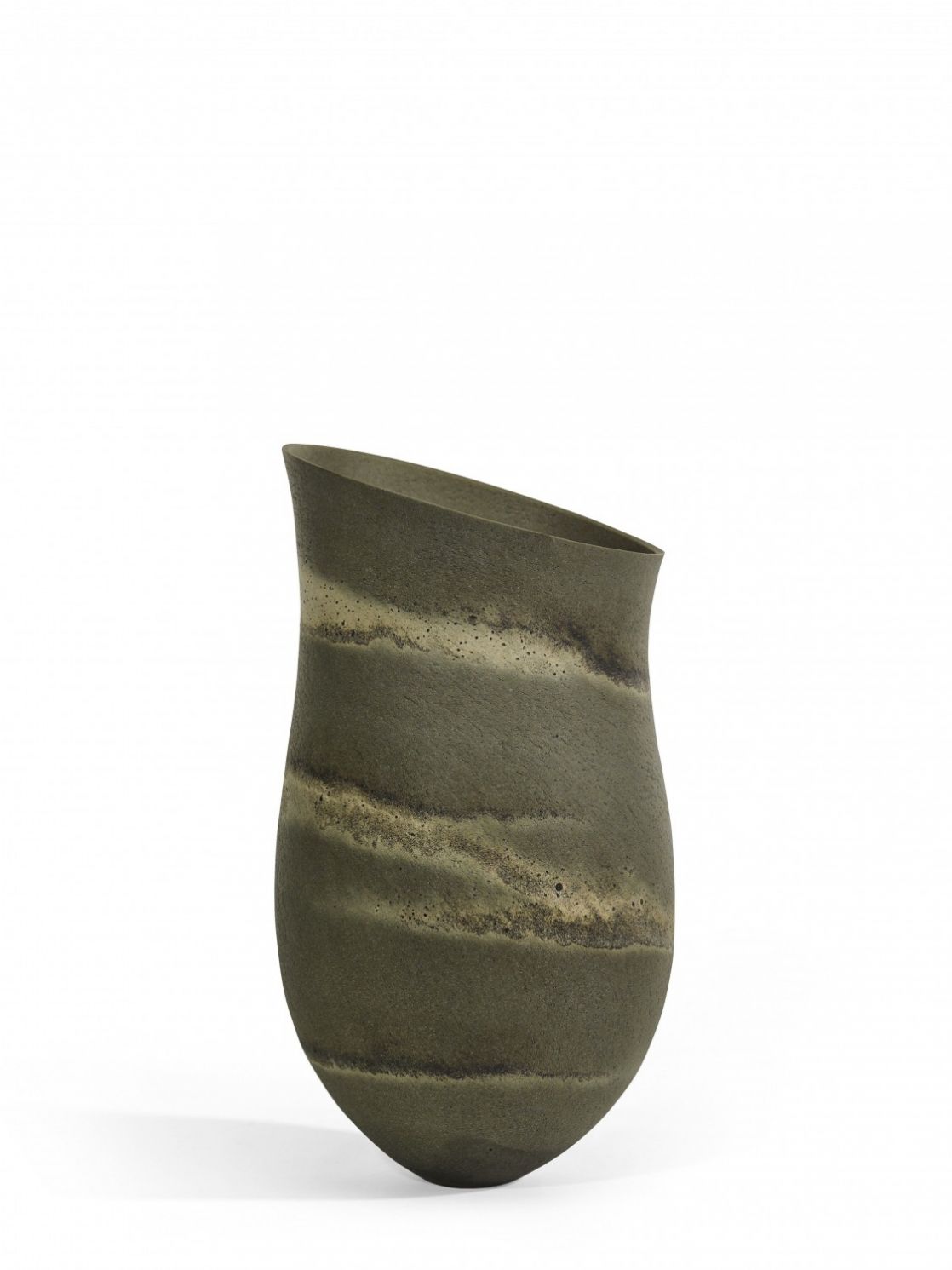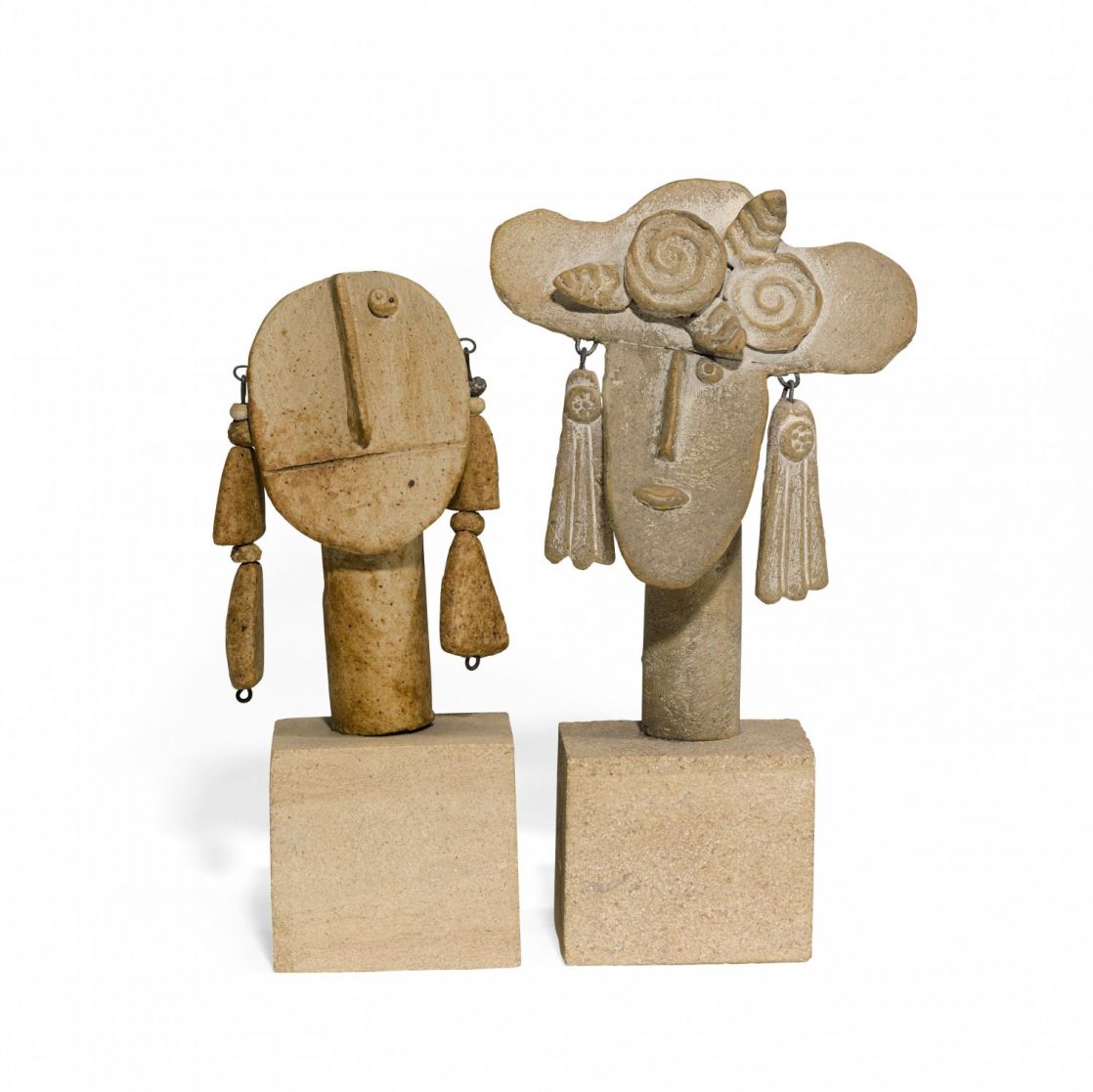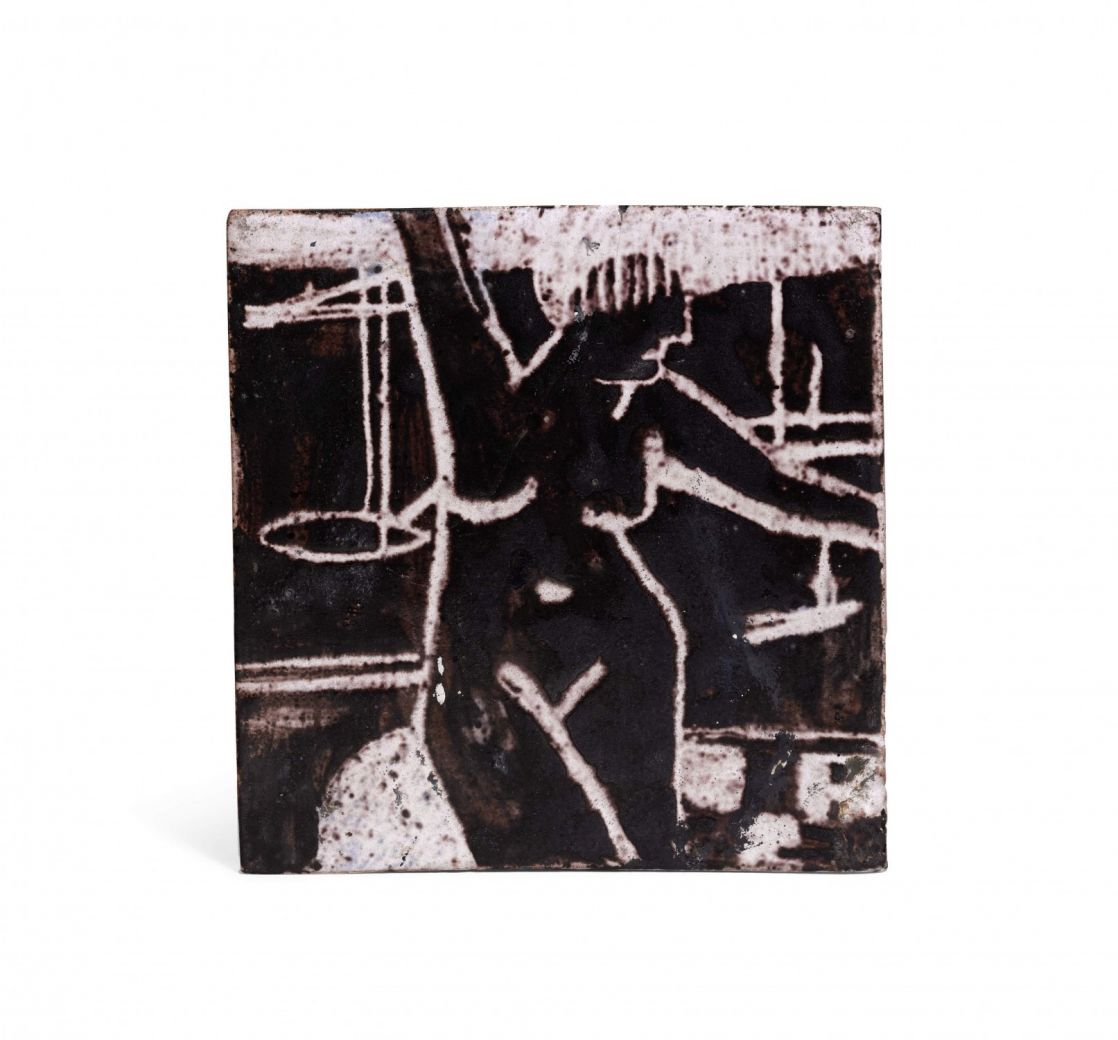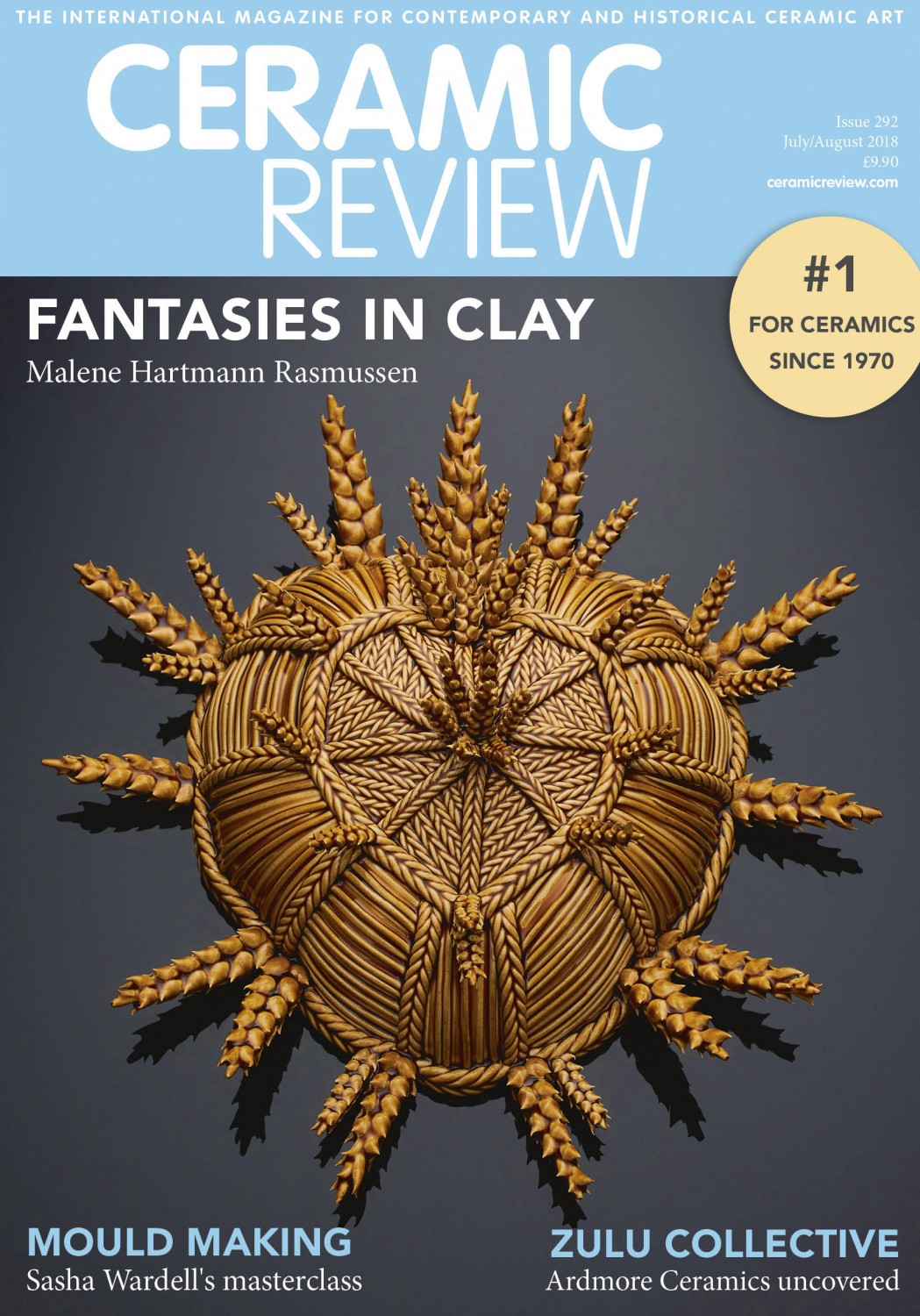Welcome to Ceramic Review
Ceramic Review is the magazine for contemporary and historical ceramics, ceramic art and pottery.
Ceramic Review Issue 334
July/August 2025
Ceramic Review is the magazine for contemporary and historical ceramics, ceramic art and pottery.
July/August 2025
With sales of ceramics reaching record prices, Robin Cawdron-Stewart from Sotheby’s takes us through the highlights of their recent Made in Britain auction and the British ceramic artists to look out for. This article appeared in CR 292.

Jennifer Lee, Olive, dark haloes, speckled and amber bands, tilted rim, 1991. Photo courtesy Sotheby's
This year saw the reopening of Jim Ede’s former home, Kettle’s Yard, in Cambridge (Ed. note: see feature in CR 291). To celebrate this fantastic redevelopment and the preservation of ‘the home of Modern British Art’, Sotheby’s recent Made in Britain sale looked at Ede’s inf luence on the art scene here in Britain, including the relationship between the so-called ‘fine’ and ‘applied’ arts.
Following a career as curator at the Tate, Ede, together with his wife Helen, moved to Kettle’s Yard in 1956. In the restored 18th-century cottages, the couple showcased works by leading names in the contemporary art scene: paintings and sculpture by Ben Nicholson, Henry Moore, Barbara Hepworth and Naum Gabo, alongside ceramics by Lucie Rie, Bernard Leach and William Staite Murray. In 1928 Ede wrote: ‘Pottery is midway between sculpture and painting… It is the art of suggestion with the utmost economy.’
If a Hepworth sculpture can sell for a six-figure sum, why shouldn’t a pot?
Ede’s approach to the interdisciplinary nature of the British arts scene was a driving force behind the inception of the Made in Britain sales at Sotheby’s, which began in 2014. They are now a popular biannual feature on the sales calendar in March and September. The auctions feature paintings, works on paper, prints, sculpture, furniture, photography and, of course, contemporary and studio ceramics. They have opened up this particular field to a whole new body of collectors. In these sales, ceramics are shown and celebrated alongside sculpture by key figures from the period, such as Moore and Hepworth, and in that context, not only stand their artistic ground but are, commercially speaking, great value for money. If a Hepworth sculpture can sell for a six-figure sum, why shouldn’t a pot?
The March edition celebrated some of the most recognisable names of the past century, presenting them all to a truly international audience. Indeed the sale saw bidding from 27 different countries across the globe. Among the highlights of the sale was Jennifer Lee’s breathtaking Olive, Dark Haloes, Speckled and Amber Bands, Tilted Rim, 1991 (pictured above).
Winner of the prestigious LOEWE Craft Prize this year, Lee’s work was also celebrated in the recent Things of Beauty Growing exhibition, which transferred from the Yale Center for British Art, Connecticut, to the Fitzwilliam Museum in Cambridge earlier this year. Originally purchased from Galerie Besson in 1992, the piece drew a great deal of attention within Sotheby’s New Bond Street galleries from both established ceramic collectors – those that have diligently followed Lee’s career from the late 1980s onwards – as well as those new to her carefully handbuilt vessels. This included a whole host of major sculpture collectors who recognise the eloquence and accomplishment of Lee’s forms and surfaces.
In 1928 Ede wrote: ‘Pottery is midway between sculpture and painting… It is the art of suggestion with the utmost economy.’

John Maltby, Two Heads, date unknown. Photo courtesy Sotheby's

Howard Hodgkin, stoneware tile, 1950s. Photo courtesy Sotheby's
The sale saw continued success for works by Dame Lucie Rie, both for her gem-like coloured bowls from the 1980s, and her domestic wares made from the 1950s onwards. The latter included a beautifully stylish (and still fully functional!) white teapot, given by Rie to the family of the present owners in the 1970s. Offered at an estimate of £700–£1000, it achieved a staggering £17,500. The sale captured the full breadth of Rie’s career, but a personal favourite was a beautiful 1960s volcanic bowl, formerly owned by the collector John Pike, and included in both her 1967 and 1982 retrospectives. It is this sort of history and provenance that can really set a work apart, and appeal to even the most discerning of collectors.
Further strong results were achieved for works by Ewen Henderson, John Ward, Gabriele Koch and James Tower, whose 1958 bowl made £10,000 against its pre-sale estimate of £1500–£2500. Interestingly, the sale also featured a small ceramic tile by Tower’s contemporary and close friend at the Bath Academy of Art in Corsham, renowned painter Howard Hodgkin. Gifted by Hodgkin to fellow student Thomas Burt, the piece was offered with a pre-sale estimate of £400–£600 – proving that the sale really does offer something for collectors at every level.
Turning attention towards the autumn, we look forward to our 18 September sale for which, even at the time of writing, we have a fantastic selection of works to be offered, including stunning sculptural works by Jennifer Lee and James Tower, and beautiful, delicate bowls by Rie (pictured at top), which were acquired directly from Rie by the present owner in the late 1980s.
For any reader that hasn’t been in to view the Made in Britain sale, or indeed Sotheby’s at all, I would warmly encourage you to pop in, have a look round (and of course say hello!) and see ceramics celebrated within the broader artistic context – one in which they hold their own and showcase the very important role that these artists and makers have had over the story of the British, and indeed, international art scene of the past century.
Sotheby’s Made in Britain auction takes place twice a year; sothebys.com/en. Contact [email protected] or call 020 7293 5483 for information or to request a free brochure.
This article is taken from Ceramic Review issue 292 (July/August 2018). Click below to discover more on ceramic art and pottery.
